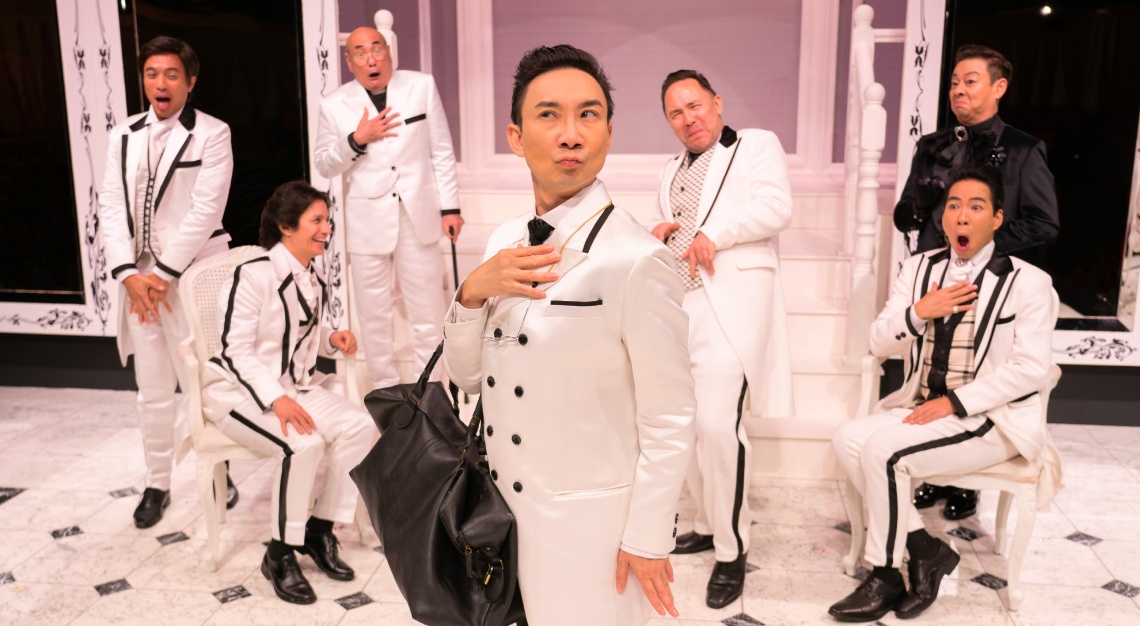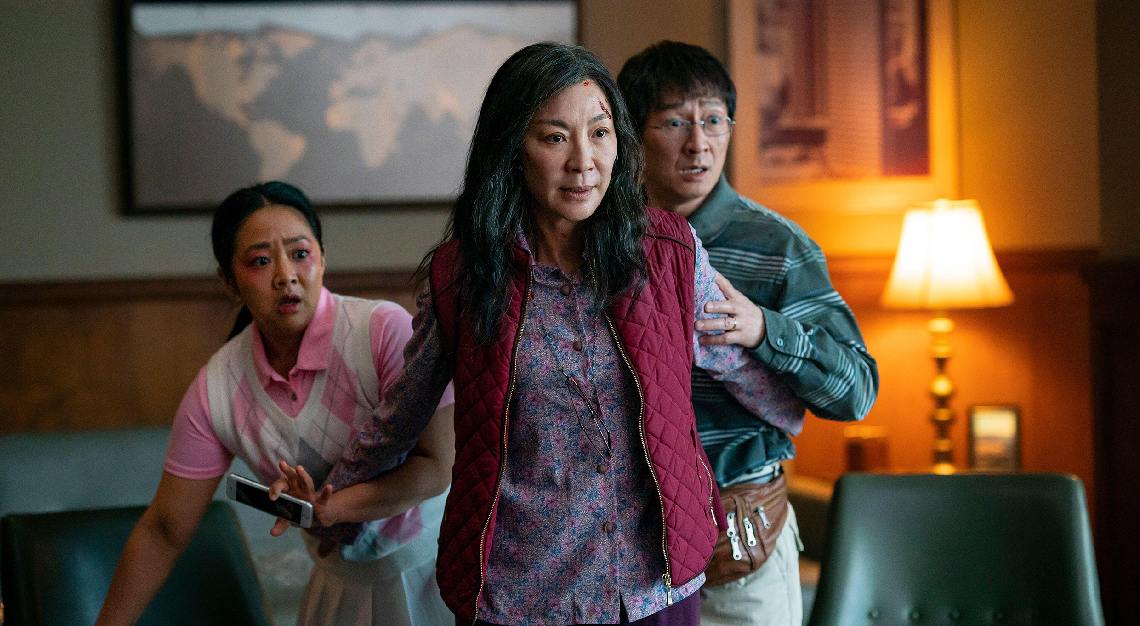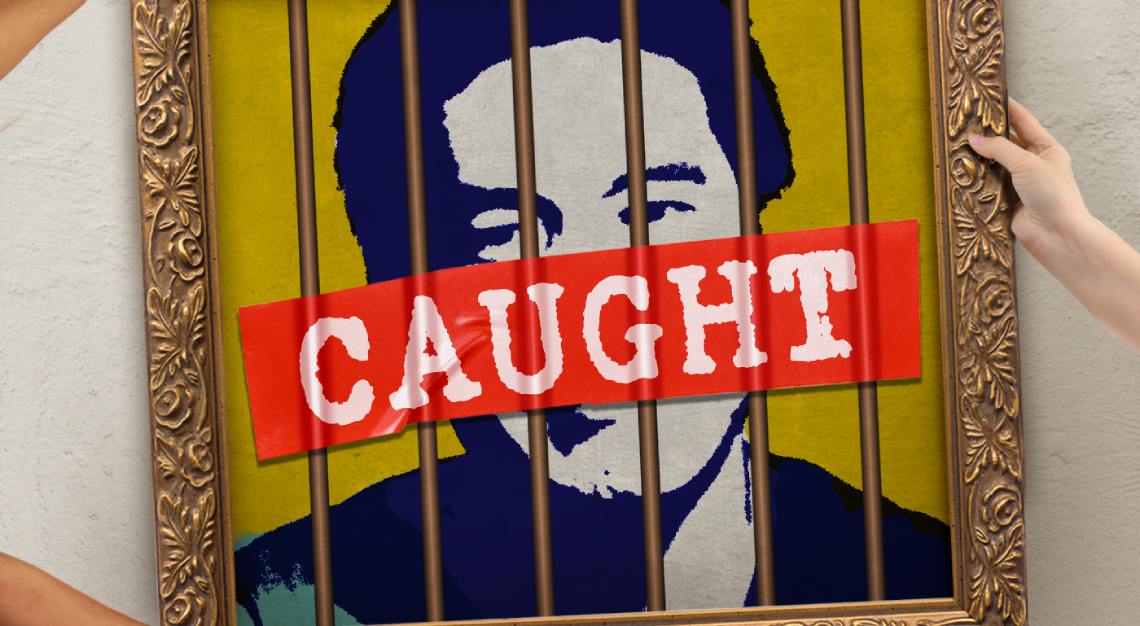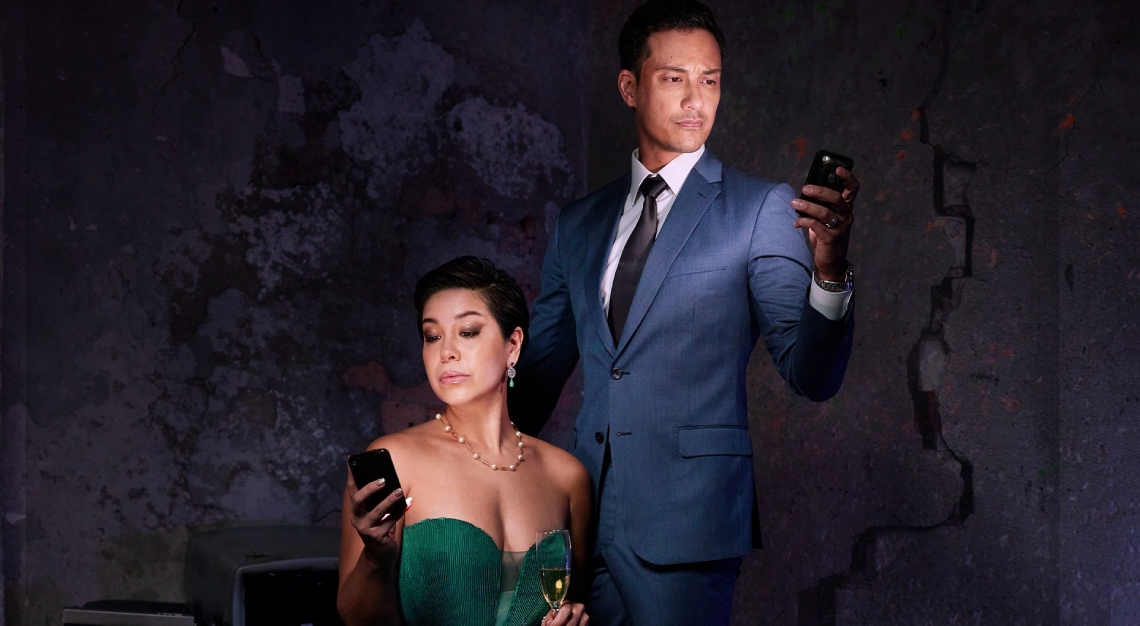Andrew Leci was in attendance as Wild Rice started its 20th anniversary celebrations, and enjoyed what he saw. Mostly
Wild Rice’s production of Oscar’s Wilde’s The Importance of Being Earnest is a delight.
It’s not brilliant, and it may not even rise to the level of exceptionally good, but it’s so enjoyable, and it’s heart is so judiciously placed, that no one is likely to care very much.
Seriously, what’s not to like about a rendition of Wilde’s arguably best-known, certainly best-loved play that contains the most quotable of quotes and was so incisive when it came to satirising the society that Wilde, ironically, was part and parcel of and whose largesse he lived and died by? The fact that it’s an all-male cast examining the social mores, prejudice and snobbery of a closeted, repressed (oppressed even) society shouldn’t matter a jot. In fact, in the context, it kind of helps.
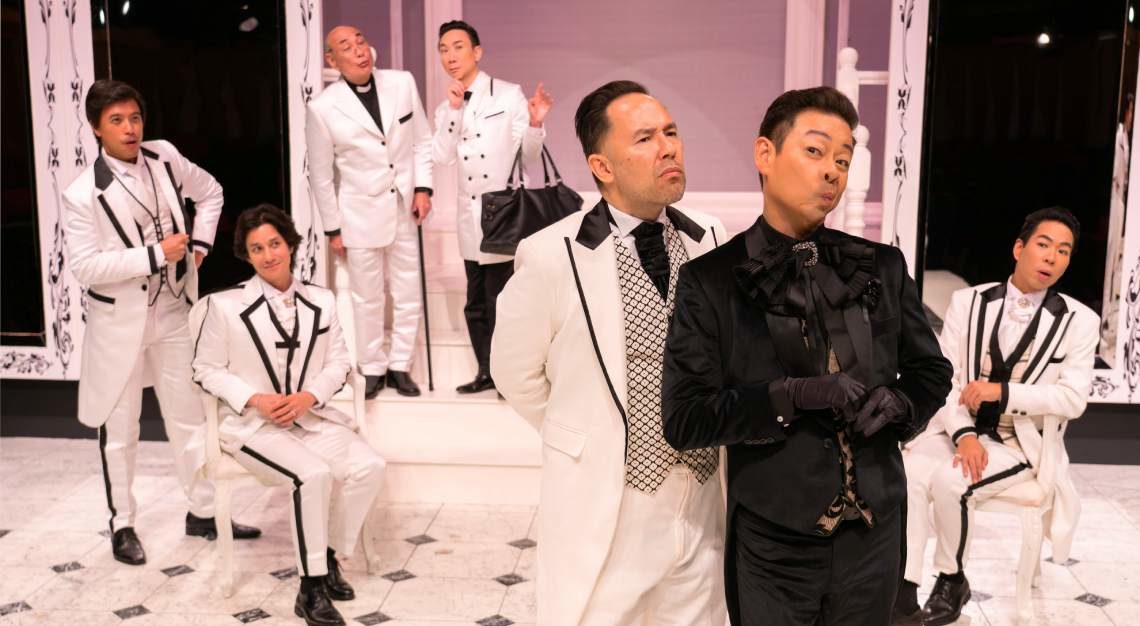
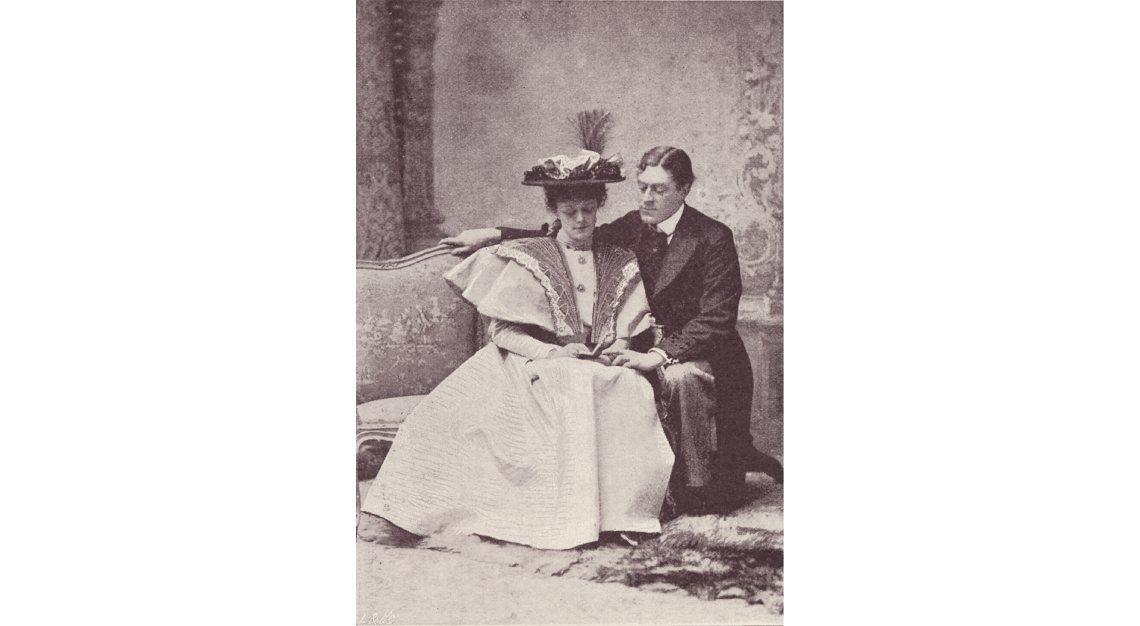
As a theatrical work, The Importance of Being Earnest was quite exceptional when it first appeared (the premiere was on Valentine’s Day in 1895), in that it produced warm, fuzzy feelings and a sense of satisfaction in those whom it lambasted. Wilde was clever enough to know what he had to do to create a commercial theatrical success and meet the expectations of those who were prepared to pay money to buy tickets. He also wanted everyone else to know how disgusted he was with them – as well as their behaviour, prejudices and misguided values.
It’s a neat trick if you can pull it off, and Wilde did. Even those whom he was satirising would have enjoyed the play, since introspection wasn’t particularly trendy or the ‘done thing’ in Victorian England – one was expected to simply accept one’s place in life and role in society – and few would have considered that one of their favourite theatrical sons would have been capable of even attempting to bite the hands that fed him, and fed him well. For a while. Until they didn’t.
Eyebrows will be raised, no doubt, concerning the theatre company’s decision to cast only men in a romantic farce for which female parts were written. Controversial? Not these days. ‘Gender bending’ has been around since Shakespearian times, when women weren’t even allowed on a public stage. An early Romeo and Juliet would have been a ‘card carrying member of the lavender elite’s’ wet daydream.
Men playing women in The Importance of Being Earnest? Why the hell not? Wilde himself would have got a big kick out of it, I suspect, and probably fancied the pants off Gavin Yap’s Cecily Cardew. Not because he was pretty – although he was (just about) – but because he bought into the concept of ephemeral beauty and the inexperience of youth with the kind of deft touches that identify an actor who is prepared to work hard at bringing nuance to the most seemingly vapid, two-dimensional role.
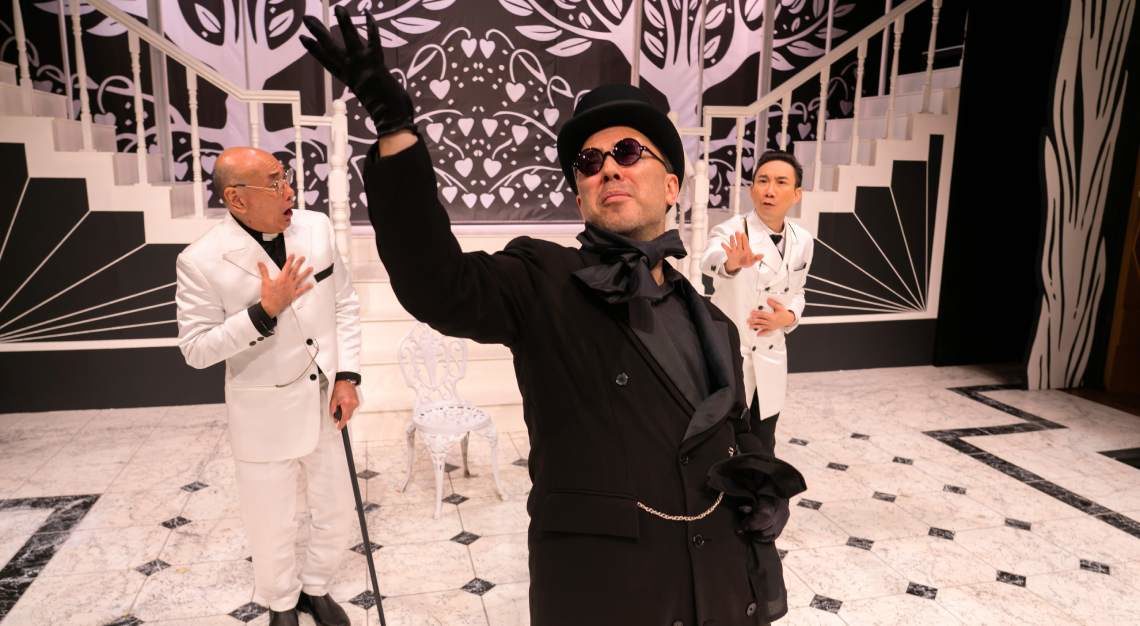
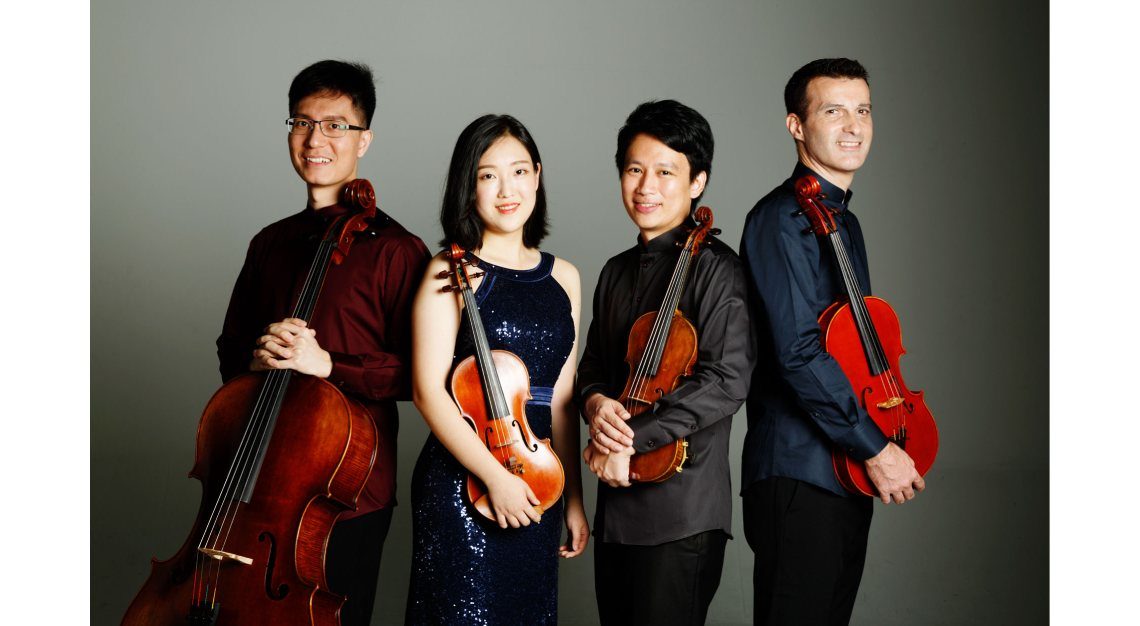
Yap was simply in the moment throughout, and looked entirely comfortable in his part. His energy was palpable from his first word and appearance, and his portrayal of the slightly ditzy but surprisingly astute (without seeming to know why) Cardew was just so much fun to watch.
As was Daniel York Loh’s Jack, whose undeserved ennui and world weariness was such a well-developed and expertly portrayed statement of Wilde’s own personal position in the zeitgeist – the kind of thing Wilde was poking fun at – at the expense, as I’ve already mentioned, of the people who put him in clover. For a while. Until they didn’t.
Unfortunately, Jack’s relationship with Brendon Fernandez’s Algernon didn’t quite work. It’s supposed to be a sensible brother / mischievous, irresponsible younger brother affair, but the age gap appeared to be a little too wide (more like a chasm), making it akin to a father and son relationship. This undermines the intended dynamic. Jack is practical – although still prone to the kind of shenanigans that he imagines will make his life more pleasant – while Algernon is a seat of the pants pleasure seeker for whom ‘consequences’ would have been nothing more than a parlour game.
The contrast between Jack’s considered planning and Algernon’s incorrigibility didn’t quite come off, and I’m afraid to say that Fernandez didn’t ‘own it’. Often awkward in manner – Algernon is a ‘dandy’; would have attended deportment classes; would have looked crisp and elegant even when going to the bathroom – I never got the impression that Fernandez was comfortable in the shoes he was asked to fill. Some of his ‘throwaway’ lines – as good a theatrical oxymoron as you’re likely to come into contact with – were indeed, thrown away, and the genuine affection that should have been apparent between the two men was insufficiently developed and scarcely credible.
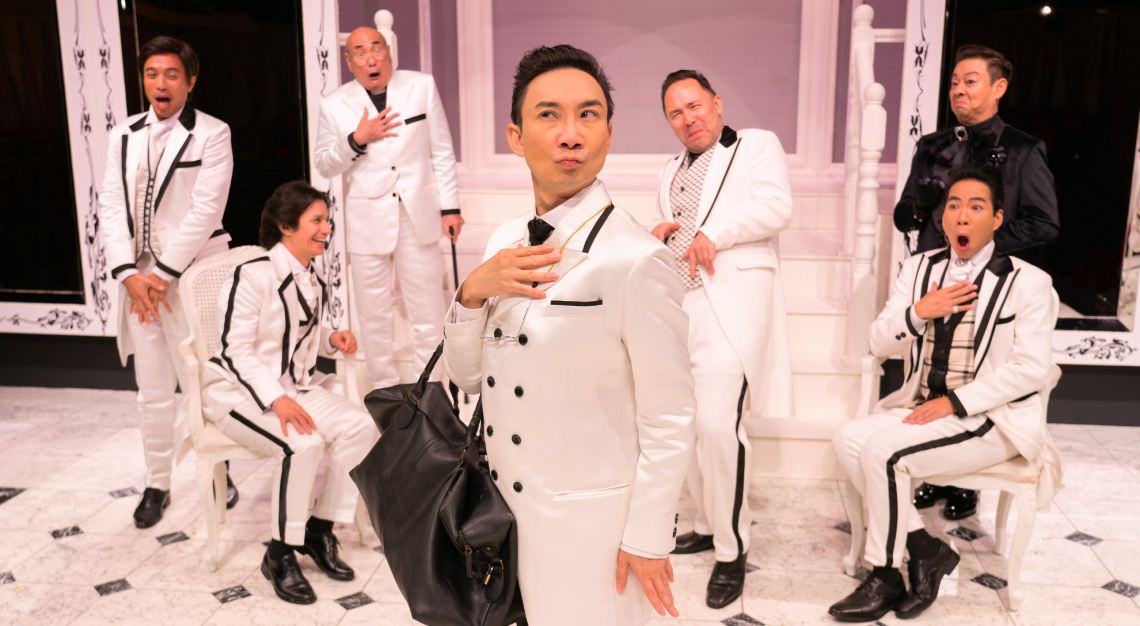
Yes, we’re supposed to poke fun at these over-privileged puppies (although Jack was a fully-grown hound) because they’re self-entitled and accepting of their positions in high society. Not arrogant; that would involve a level of self-awareness that they were never supposed to have reached, but comfortable in the knowledge that they were near the top of the societal tree looking down on the others who facilitate their lifestyles.
And this is what is so mischievously pleasing about the play. It’s a wonderfully syncopated social rag on the upper classes – encouraging them to take a good look at themselves, but also knowing that they would have had no intention of, or faculty for, doing so. This was Wilde’s genius. He realised that fashionable society would clutch him to its heaving breast because he was brilliant, clever, the belle of whatever ball he was invited to, and as good a conversationalist as you would ever be likely to meet.
Lurking within a great mind, however, was the knowledge that he was an outcast who knew that he would be castigated (as indeed he was) when his true nature was revealed. Wilde was almost making hay while the sun shone as he enjoyed quite a few more than his ‘15 minutes of fame’, but the rancour and bitterness of his subsequent treatment as a homosexual provided the footnote to a life that could have and should have shone brighter for longer.
The Importance of Being Earnest is a quite brilliant play, jam-packed with bon mots and lacerating epithets that ping around like a ball in a game of tennis, and salutary lessons for the individual about trying to be something that you’re not. Strangely prophetic, perhaps, in our social media age, in which appearances are everything, and massaging the truth for personal gain is almost par for the course and far too readily accepted.
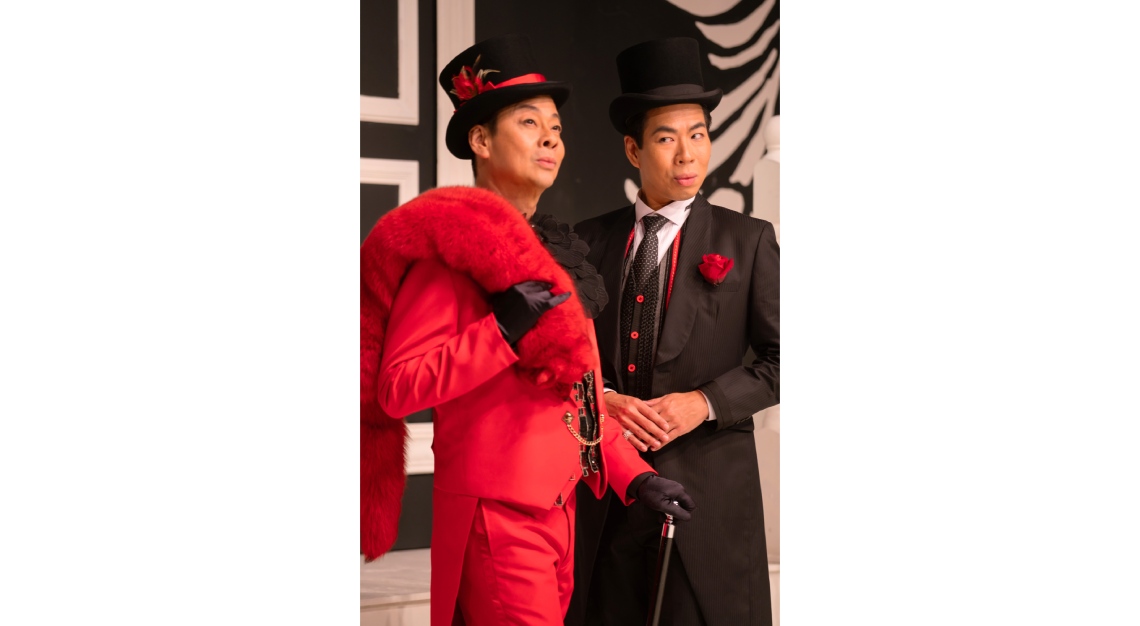
This may have been a recessive theme in the presentation, but there was emphasis on the lines involving duplicity and misrepresentation that enriched the piece – whether entirely deliberate or not. All done, of course, with great humour. Unfortunately, there was considerable variation in delivery, with some of the actors not quite managing to grasp Wilde’s line modulation and cadence. The rises and falls of almost every line are such a vital component in the humour of the show, and not everyone seemed as comfortable in what they were supposed to be saying (or conveying) as they might have been.
I could quibble further – to wit, some of the blocking was a little odd, and the ‘acting off’ (my term for what characters are doing when they’re not actually speaking) was occasionally unfocused – but that would be being niggardly. There were some star turns, and a couple of superb cameos – Crispian Chan’s Lane was spot on; he doesn’t have much to say, but, representing the downtrodden masses, every word he said was riddled with the kind of irony and faux self-abasement (all nicely delivered) that the word ‘withering’ was invented for.
Ivan Heng as Lady Bracknell stole a scene or two – but only for those who have seen an iteration of The Importance of Being Earnest before – by not stealing scenes at all. His rendition rejected the notion that Lady Bracknell has to be larger (much, much larger) than life and delve into the hinterlands of melodrama and high camp. This Bracknell was the most laidback I have seen, enabling focus to remain on the chief protagonists. This was masterful direction from the irrepressible Glen Goei, in my opinion, and admirably selfless for an actor with Heng’s chops.
Wild Rice’s The Importance of Being Earnest is a production that should definitely be seen – especially for those unfortunate members of the public who’ve never seen a performance of the play before. I say ‘unfortunate, but I probably mean ‘fortunate’, because watching Wilde’s masterful work for the first time will be nothing short of a delight.
